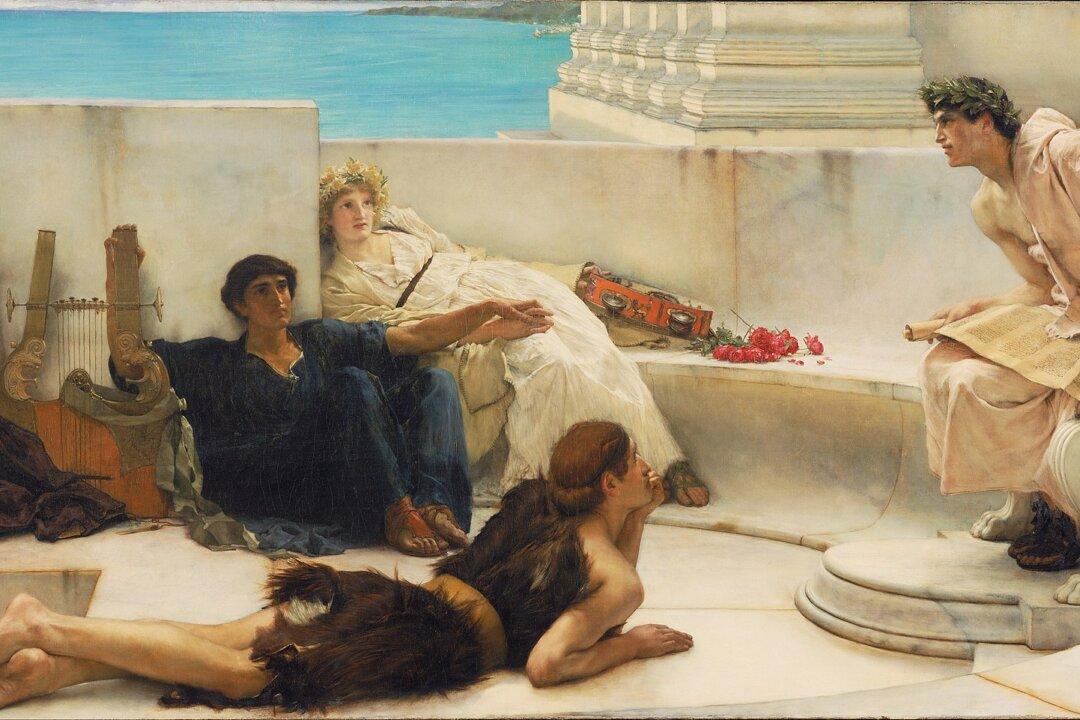When we think of Homer’s epic poem “The Odyssey,” written in the late eighth or early seventh century B.C., we think of the monsters. We picture the raging Cyclops hurling stones at Odysseus’s ship, each massive rock sending up towers of spray from the glinting surface of the Mediterranean. Or we think of the swirling waters around Charybdis as the creature swallows gulps of “the wine-dark sea,” to use Homer’s lovely epithet, while Odysseus struggles to stay out of the beast’s reach. We might also question what an ancient swashbuckling tale like this could have to offer modern readers.
But Homer’s main concern in the poem is not monsters, or magic, or adventure, though the story contains a generous helping of all these. He focuses, rather, on questions of home, family, and especially fatherhood—themes that certainly resonate with us today.






